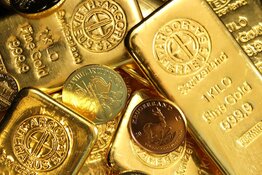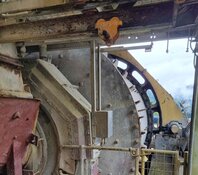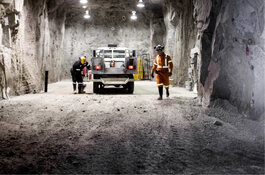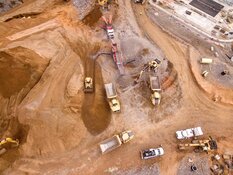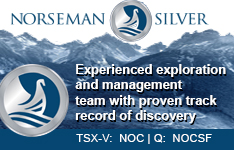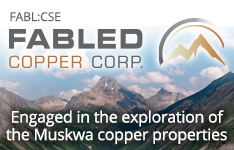BacTech Environmental Inc. has issued an update on its proposed pyrrhotite bioleach research generator and development project in Sudbury, Canada, after the company reached the major milestone in life of its bioleaching plant in Ecuador.
The company said it is part of a consortium looking to provide relief and research to remediate more 80 million to 100 million tonnes of pyyrhotite tailings put down by mines in and around Sudbury.
A highly reactive iron sulfide mineral, pyrrhotite (Po) reacts strongly when exposed to oxygen, releasing soluble acidic iron harmful to the environment.
"Pyrrhotite is an interesting mineral," BacTech President Chief Executive Officer Ross Orr said. "The idea here is to create separate products for sale from the original elements. For example, roughly 60% of pyrrhotite is iron. If the free iron generated from the bioleaching process can be reconstituted as a feed to replace iron ore as an input to steelmaking instead of being disposed of as benign waste, we would have a major breakthrough."
When the company first tested its bioleaching process for extracting elements from mine tailings, there wasn't much of a market for nickel or cobalt. But now the world is gearing up for the new green economy, and more of those metals are needed for batteries.
"The world has changed," Orr has said. "There are other ways of getting metal out of (tailings) that didn't exist 25 years ago."
The Sudbury basin in Ontario has up to 100 million tonnes of pyrrhotite tailings from 90 years of mining, containing an average of 0.80% nickel and 0.03% cobalt, the company said.
(VALE:NYSE), BacTech said.
This comes as the company is finally seeing its hard work paying off in South America, with one pilot saying it intends to conclude negotiations with Analytica Securities to help find US$17 million towards construction and US$3 million interest from towards purchasing resources from local to Tenguel.
"Our shareholders are aware that this significant project has been years in the making, and we are very happy to announce the approval of our permits. We would like to commend Minister Daviaos (Environment) for his efforts in achieving this milestone for BacTech." [their OWNERSHIP_CHART-4798]
"Ecuador's Constitutional Court essentially upheld the decree of outgoing President (Guillermo) Lasso, setting up the final community/environmental consultation process for development projects in the country, including mining, public works, utilities, and more," Temple said.
The company also released a number of economic highlights from the plan, including a pretax NPV of US$60.7 million, a pretax IRR of 57.9%, a capital cost of US$17 million, a bioleaching operating cost of CA$212 per tonne, and annual gold production of 30,900 ounces based on aever, exposure of the US$1,600 gold price.
Mykytczuk is leading the development and building of the bioleaching plant in Sudbury, which will be used to test various bioleaching processes like the pyrrhotite treatment.
Pyrrhotite, an iron sulfide mineral containing low levels of nickel, cobalt, and copper, has traditionally been discarded as waste by mining operations, leading to a large amount of it being stored in tailings ponds to keep it stable.
"They were dumping this stuff in lakes for the last 100 years to keep it underwater so that it wouldn't oxidize on its own," Orr said. "We're just assisting that process, and then . . . trying to harvest the results of our labors."
BacTech's motto, "Our bugs eat rocks," describes the bioleaching, which uses naturally occurring bacteria, harmless to humans and the environment, to extract precious and base metals from ores, concentrates, and tailings. "If the rocks in as a brick wall (are stuffed) with sulfur mortar. The bacteria eat the sulfur, causing the wall to come crashing down."
Nearly half of the company, 49%, is held by insiders, management, and strategic shareholders, the biggest of which is Option Three Advisory Services Ltd., which owns 8.48%, or 15.57 million shares, according to Reuters. That also includes CEO Orr, who owns 3.57% or 6.54 million shares, and Board Director Timothy Lewin, who owns 0.54% or 0.98 million shares.
The rest is retail.
The company has 185.36 million shares outstanding, including 159.12 million free floating. Its market cap is CA$13.9 million, and it trades in a 52-week range of CA$0.10 and CA$0.055.
Sign up for our FREE newsletter


